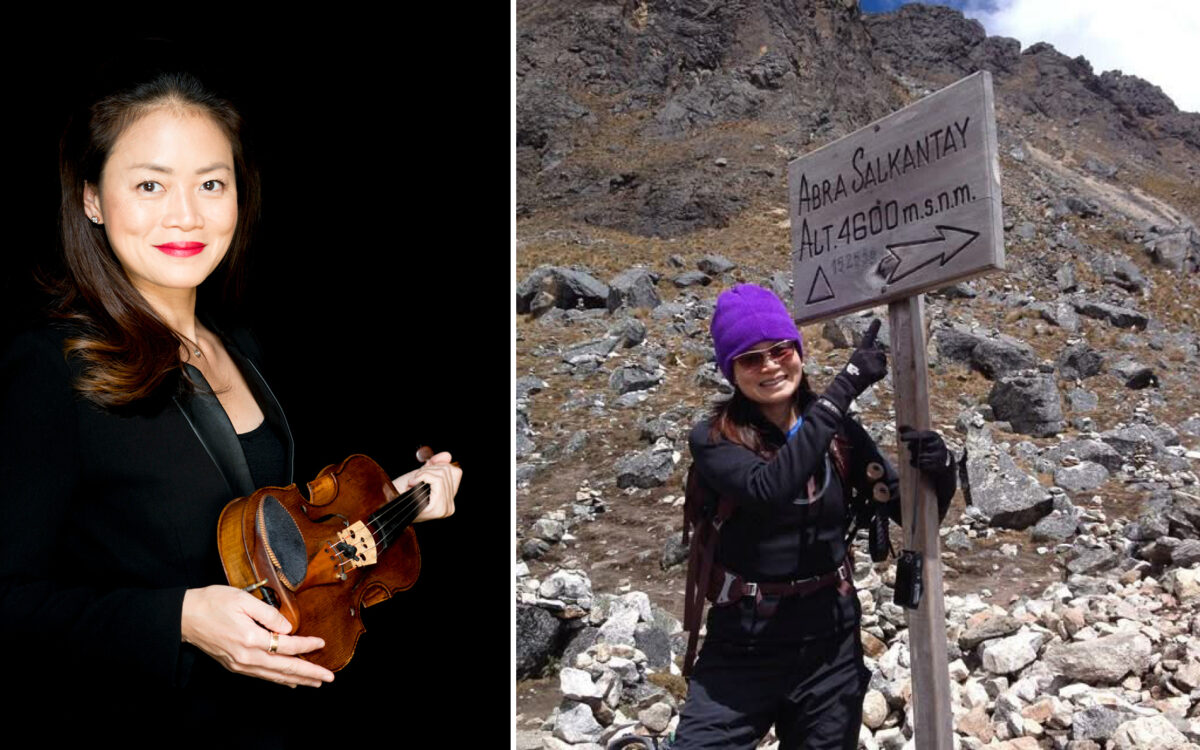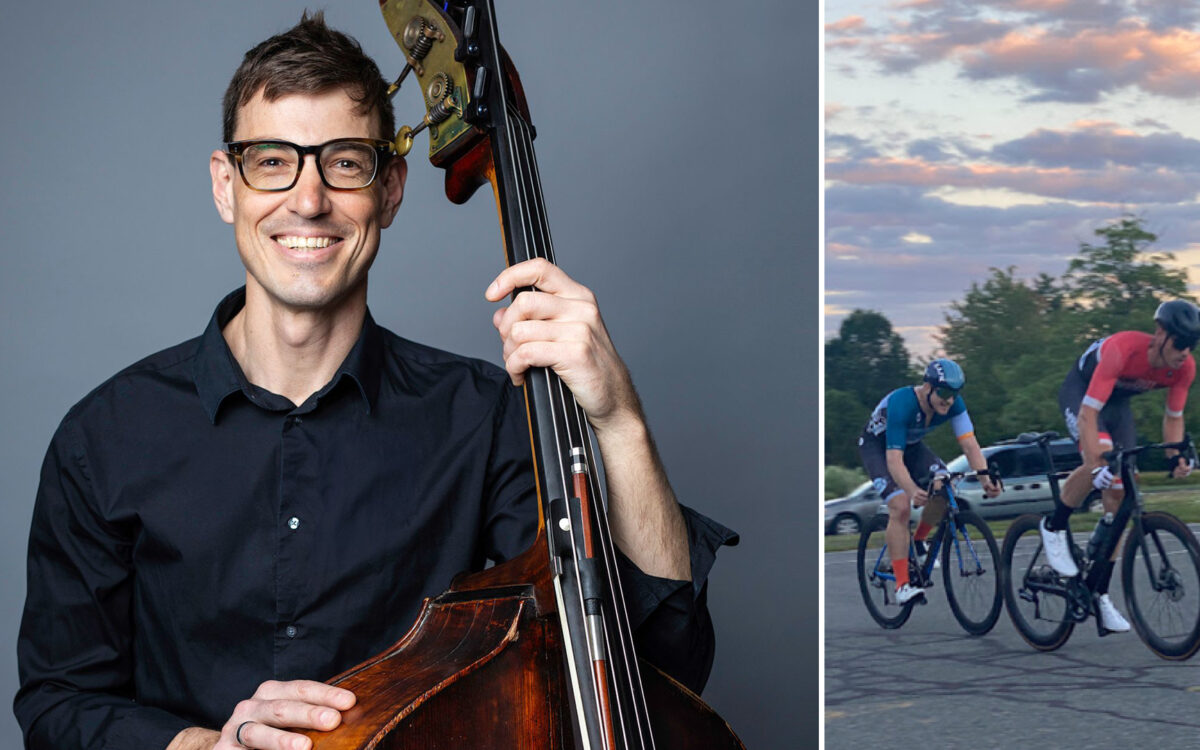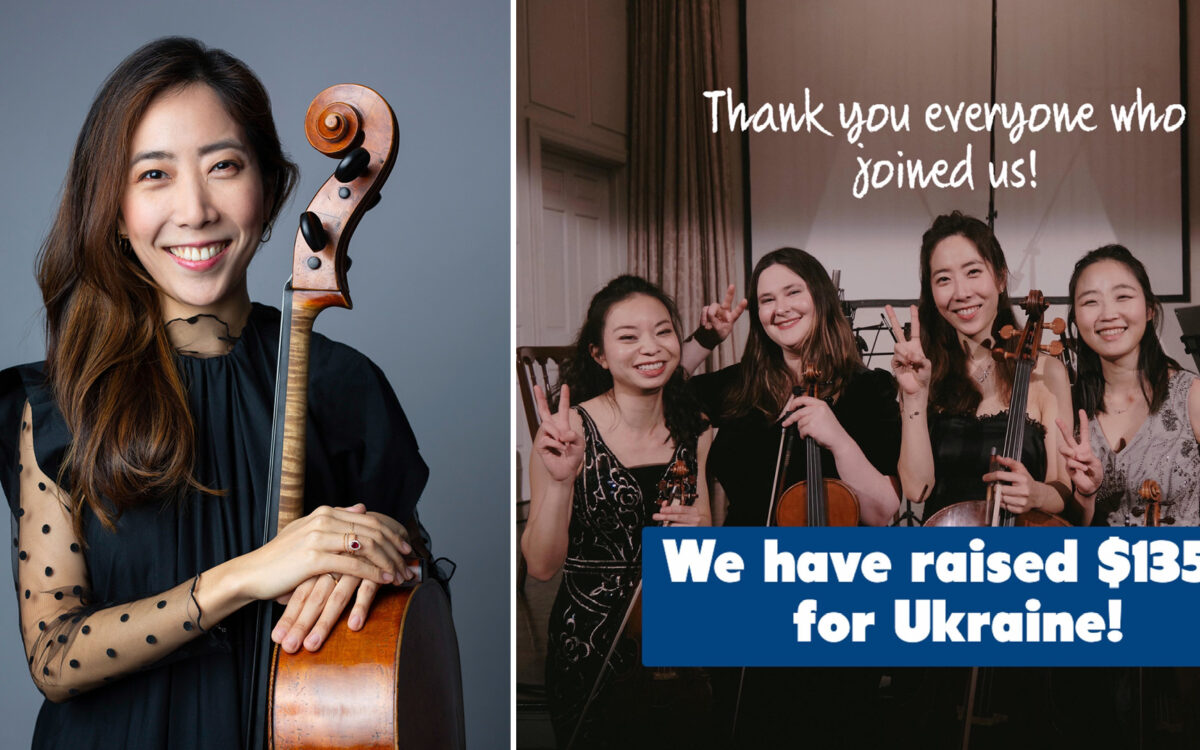How Harvard Business School Helped Violinist Wendy Putnam See All Possibilities
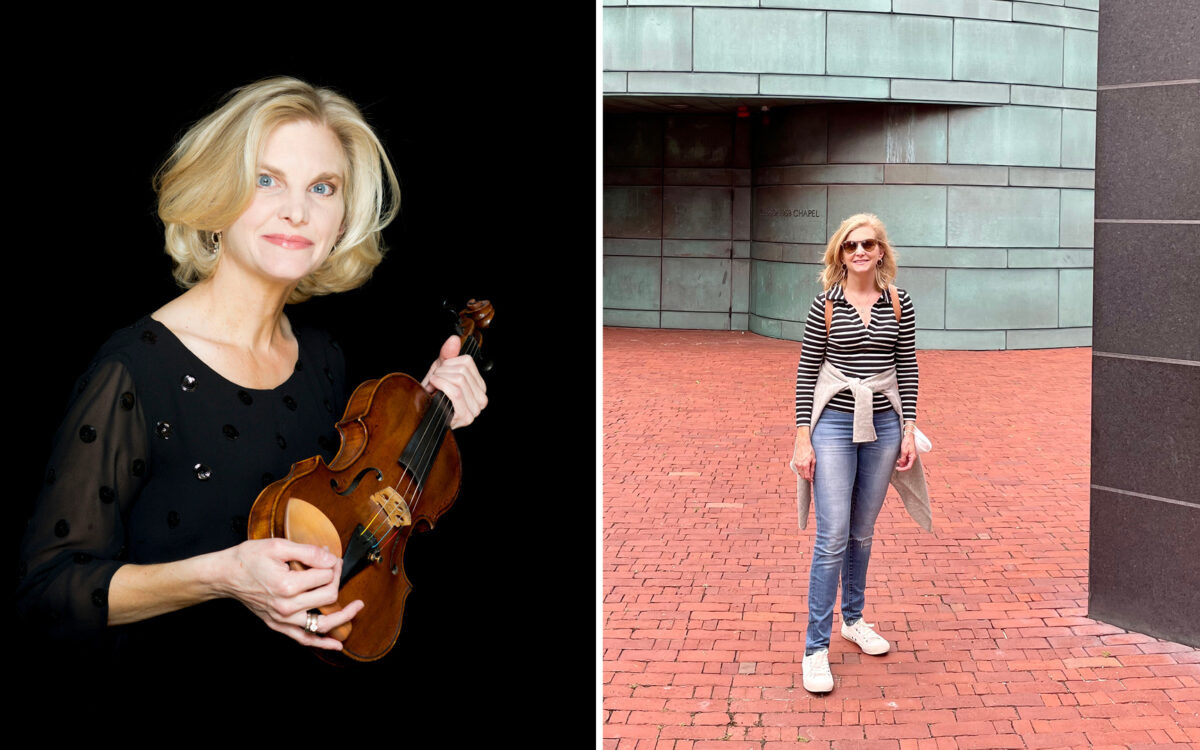
You went to Harvard Business School. What inspired you to apply?
I love the way that business thinks about innovation, evolution, organizational behavior, and competition. All those are things that I feel are uncomfortable for us in performing arts organizations to sit with and consider. I'm very passionate about incorporating those pieces in the service of helping us reach and engage more people.
Do you feel like what you learned there contributed to your career as an orchestral musician?
In some ways as a musician, yeah. But I spent more time thinking about the big picture and how organizations live, breathe, die, evolve, and grow.
I can imagine that a lot of the people with whom you did this program came in either having some previous business experience, or they were interested in moving into that field. What was it like coming at it from a different direction?
I wasn't as different as I thought I would be. Everybody came into that particular program from very different backgrounds. The one thing we all had in common was wanting to shift in one way or another and grow. We each felt like we had sort of reached a certain limit internally using our own skills and knowledge, and we wanted to reach a point where we could pivot, maybe think about things differently, and do things differently.
How was that balancing being a musician with taking all these classes?
I completed the program online during COVID, so I was able to devote myself to it.
I really felt like I had a different hat on for sure. It took me out of my “musician” mode in a lot of ways and it helped me think about how much am I defining myself by what I do. As we know in the music world, you do that a lot. But it helped me to think about who I am when I'm not playing the violin, when I'm not using that voice, and when I'm not relating to the people around me as a musician in the BSO.
What do you think you discovered about that? How do you think you that helped you redefine yourself?
It helped me find my voice in other ways. It helped me think about what my values are and what I want, not only for myself, but for my family, my job, the people around me, the BSO, the other organization that I founded in Concord, the Concord Chamber Music Society; all of that.
The things that I mentioned earlier about innovation, growth, change, competitiveness and organizational behavior, those things became scaffolding for me to think about what is happening around me in a new way.
If you could sum up what you learned at HBS in a couple of words, what do you think it would be?
I'm not sure I could sum it up per say, but I think my takeaway for the performing arts is to start doubling down on the kind of organizational discipline we see in business, especially in the areas of innovation and growth. See what's going on out there and utilize best practices. We can learn a lot from what other organizations and businesses have done.
How do you think this applies to the BSO?
In so many ways. I mean, this is such a storied, resourced, grounded organization. And having been in this orchestra for almost 27 years, I've seen a lot of change. And I've seen a lot of stasis. I have a unique perspective now on this organization and its place in the community and in the world. And I think that change is hard. Change is very, very hard, and how an organization navigates change is really important. I think that the more one can learn about change and optimizing the process of change, the better off we’ll be.
What would you like to see the BSO doing more of?
I think I would like to see more engagement in a mission-driven way with our audiences and with all our stakeholders, top to bottom.
The piece that's critical for me is connection. Back-and-forth communication. It’s not just “we're talking to people.” It's not just that “we're doing things for people,” but that we're hearing them and we're having a dialog. If we ask the right questions and we listen and incorporate what we learn, we will be able to grow and evolve into an organization that is better integrated with our community and is more internally aligned.
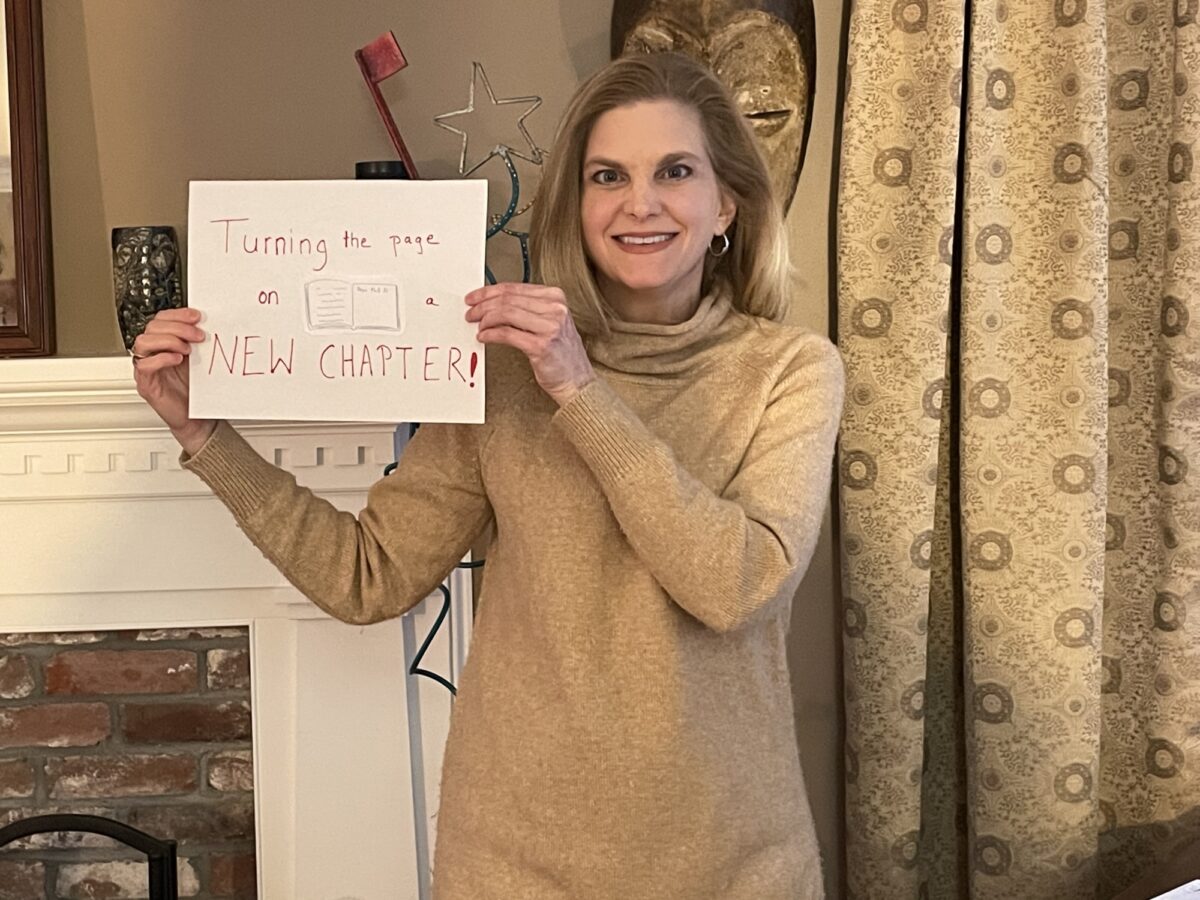
When did music come into your life and when did it become the thing for you?
It was always a part of my life. My parents were both music teachers. They were Suzuki teachers, and they taught in the home for a good part of the time. So, I grew up from day one with music all around me.
I remember my mom telling me a story — because I was very small baby — about me being in a shoe box, literally, being all wrapped up in a blanket in a shoe box while my parents read chamber music with friends over the holidays.
When did you choose your instrument and when did you know violin was the one?
Well, that's another interesting story because my parents initially chose instruments for my sister and me. So, I started on cello — which actually wasn't really a cello, I think it was a full-size viola that was balanced on the floor [laughs] — and she started on violin. At some point we traded instruments. I started to play violin somewhere between the age of 3 and 4.
What was your journey in school and choosing this as a career? Because it's not an easy choice to make.
No. I wouldn't say it was straightforward or simple. It was kind of more like, okay, am I really on this path? And then recommitting myself as a teenager and trying harder, practicing more, and ruling out other things. I don't think I ever had an “aha” moment where I was like, okay, I have to be a violinist.
What's your favorite classical piece or classical composer?
I always tell people I do not have a favorite composer because there are so many that I love and there are different times when I'm like, oh, that resonates or that seems right. I do have a favorite time period, and that is the music that our maestro loves so much too: Second World War-era music. I love the complexity, I love the rhythms, but what I particularly love is the multitude of contradictory emotions that are all encapsulated. When you play Mozart, it's simpler in an emotional way. But that kind of emotional complexity really draws me.
When you're not listening to classical music, what are you listening to?
My husband is going to laugh, but jazz all the time, 24 hours a day. I don't listen to classical music at all if I can help it.
Who's your favorite jazz artist?
Oh, again, I have so, so many. Let's see. I love pianists like Oscar Peterson. I love jazz trios like the Vince Guaraldi Trio. All the greats. I love swing. Ella.
Who is your dream person to collaborate with, either in classical or non-classical realm?
Because of the recent programing at the BSO I would say Yo-Yo Ma. Right now, for me he models so much of what I'm thinking about — particularly relative to making connections — and what I’m inspired to do and incorporate into my work.
When you're not taking classes at the business school and you're not playing music, what are what are some nonmusical hobbies that you have?
I love to cook. I will just find any interesting recipe and try it out for fun. I love to be outdoors, hiking, gardening, biking, walking, whatever. I think picking something and learning something new is also kind of like a passion for me.
What's the latest thing that you've learned that you sort of stumbled upon or that that fascinated you?
I started reading about viruses; I got really interested in viruses over COVID.
What did you learn?
How adaptive they are. Sneaky and adaptive.
Lightning round! Do you have any pre-concert rituals to get yourself, like, in the performance zone?
If you asked my colleagues, they would definitely verify that I'm the person who flies in the door five minutes before it's time to be onstage. But when I do actually have the time to center myself, I will often go and fill up my paper cup with hot water. That really helps warm up my hands and helps me center myself a bit, and I do stretches.
What kind of stretches?
I had hand surgery a little more than a year ago now so it’s important to do the stretches for my tendons.
Where is your favorite place to grab food near Symphony Hall?
There’s where I like to try new things. I love to try new restaurants, and there's no lack of opportunity for that because there's so much turnover around here. I love DeuxAve and Pavement for iced tea.
How about out in the Berkshires when you're at Tanglewood?
Wheatleigh. Prairie Whale. And Brava!
What is your coffee or tea order?
Oh, I'm an iced tea nerd. All I drink for caffeine is iced tea. And I'm always looking for the best loose leaf black tea I can find. So, these days, I'm totally sold on Mem Tea in Cambridge. I love going over there and going to the shop. That's a sensory treat.
What is your favorite pizza topping?
Olives. Good olives.
Maya Shwayder is the BSO's Senior Contributing Editor and Copywriter.

